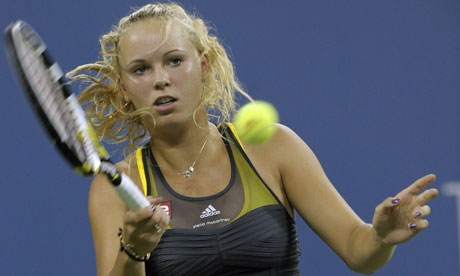This question is one that I hear repeatedly from sports people of all skill levels. The practice to match divide is often the source of complete bewilderment. To me, the answer lies in the extent to which you practice your mental game rather than just your technical, tactical or physical game.
The Consequence
Let's start by considering the major differences between a match and practice. In a match situation there is a consequence to everything you do. This can be either positive or negative but it will usually involve very intensely felt thoughts, emotions and feelings caused by the constant evaluation involved in a match coupled with your expectations. Practice, on the other hand, does not inherently carry these same consequences - it is very easy to have another go if something does not work.
Therefore, in order to practice the mental side of your game consequences need to be built into practice sessions.
So, comparing your play in practice with your play in matches is a bit like comparing apples with oranges - they are not the same thing.
Skill or Matchplay?
This is where an evaluation of the effectiveness of your practice sessions could really help. To start with, it is essential to work out whether your practice session is going to be about developing your skill or whether it is aimed towards improving your matchplay. Either way, it is essential to build pressure into your practice through the use of consequences. These do not have to be punitive in nature but ideally should act to generate the same emotions and thoughts that would occur in a match if the same shot was played.
I accept that it is impossible to recreate match conditions in practice because practice will never be a match. However, it is important to try to recreate, as closely as possible, the same conditions as a match.
This means recreating the same environment and the same emotional responses as you would experience in a match.
Earlier this year we heard reports of how the England Rugby Union team played the Welsh national anthem at full volume during their practice sessions to recreate the same environment they would face in Cardiff (and the associated emotions and communication problems that would occur). In addition, challenging match scenarios are frequently used in practice sessions to simulate match conditions for precisely these reasons. These principles need to be applied no matter what level you are competing at.
The Problem Emotions
When you are seeking to develop mental skills in practice in this way, it is first necessary to self-reflect on your most common emotions and thoughts you encounter as problematic in matches. This is so that you can effectively practice experiencing these feelings as closely as possible in practice as you do in matches. In this way you will be better prepared for these experiences when playing matches and will have developed the skills needed to play effectively when experiencing these thoughts and emotions.
Therefore, if you want to close the gap between your match game and your practice game then consider your practice regime and evaluate how you practice your mental game.
My suggestions here are a long way from being exhaustive, but if implemented correctly will assist you in playing matches more akin to your practice game.
Let's take an example:
Dave and Andy are two equally skilled tennis players practicing their groundstrokes together. Dave lost a match two days ago and noticed that whenever he plays a tie-break he feels extreme pressure to win points quickly. He noticed that his mind races forward to what will happen if he loses the set and he starts to panic and feel nervous. Essentially, he just wants the tie-break to finish.
Dave has decided that while hitting his ground strokes with Andy, he will keep a tie-break style score in his head without telling Andy that he is keeping score. In this way, Andy remains relaxed and hits the ball without any fear. However, Dave now has a specific focus to his practice. He imagines that he is playing a tie-break at the end of the first set and commits to practicing his shots while experiencing similar emotions to those he will face once he is playing a tie-break in a match.
Dave starts to feel his heart rate increase and to have unhelpful thoughts during his practice in the same way as he does in a match but his exposure to this level of nervousness allows him to become familiar with it and to play effective tennis while he is experiencing these feelings. Over time, Dave will improve his performance in tie-breaks without Andy ever knowing that Dave has been practicing his mental game.
Happy practicing!

